

29.07.2025
404
What are the advantages? Moving to and living in Dubai attracts many people. This is not surprising: high level of comfort and almost absolute security, first-class healthcare and excellent education system, low taxes.
What to pay attention to? Besides the advantages mentioned above, life in Dubai has certain disadvantages. Whilst they are not significant, discovering them might come as an unpleasant surprise for an unprepared person. Therefore, before deciding to move to the Emirates, it is highly advisable to learn about everything in detail.
The UN publishes the Human Development Index ranking annually, with the United Arab Emirates consistently occupying the top positions. The research is conducted to identify countries that have created the best living conditions.
Any state in its development should strive not only to achieve high economic indicators but also to provide accessible opportunities for people. The Arab Emirates consistently reaches higher positions, which indicates their rapid development, stable government course, accessibility of education and healthcare, as well as high quality and life expectancy, including for foreigners.
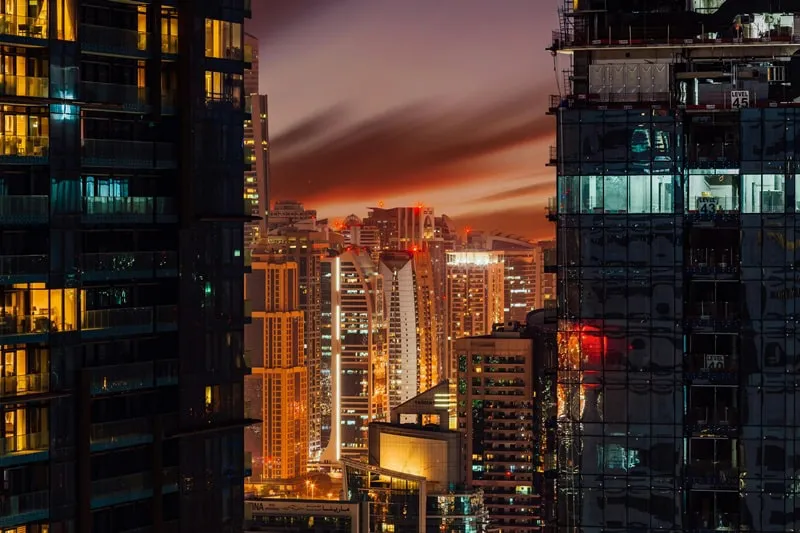
In Dubai, expats make up more than 80% of residents. They feel comfortable living in this city, even if they don't know Arabic. The state's policy is aimed at attracting foreign workers, making it easy to start a business or obtain a work residence permit.
The standard of living in Dubai is high because the authorities constantly invest in creating comfortable infrastructure. New roads and buildings are being constructed, territory landscaping is being carried out, and cultural life is developing.
The region's internal policy, unlike other Middle Eastern territories, is characterised by greater liberalism. Foreigners in Dubai are allowed to drink and purchase alcoholic beverages, live together before marriage, but they cannot have children out of wedlock or display their affection in public.
The very fact of how quickly such modern cities with maximally comfortable living conditions appeared in the desert area remains a mystery. Despite the fact that one needs to be quite wealthy to live here, many migrants come to this city because they can live in comfort and achieve a good income. Let's examine the main advantages and disadvantages of living in the United Arab Emirates.
The Emirates has a very low unemployment rate, which finally stabilised after the pandemic. Foreign workers occupy a large share of the labour market. Vacancies are available in all sectors, but migrants usually find employment in trade (wholesale and retail), real estate, and construction. The Ministry of Human Resources and Emiratisation offers effective ways to expand the market, such as employers creating temporary positions. Employees have the right to work for multiple organisations simultaneously, and unemployment insurance is provided.
The Arab Emirates is among the countries with the most comfortable conditions for commercial activities. The state ranks 16th in terms of ease of doing business (according to the World Bank report).
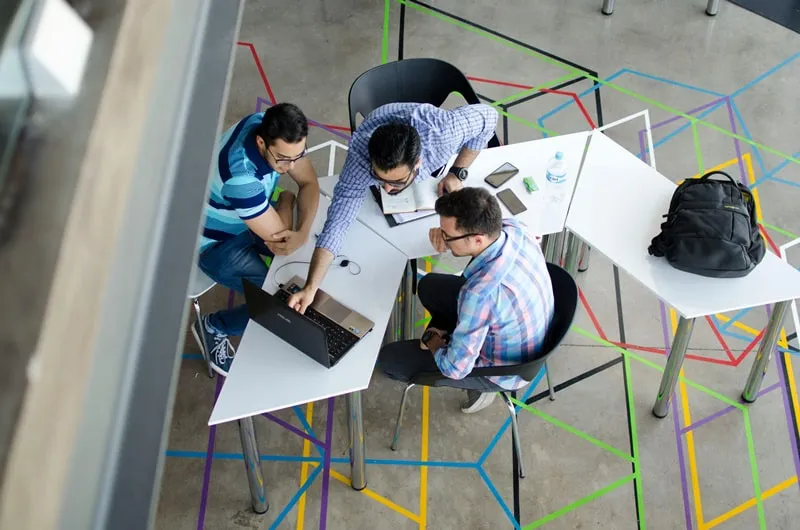
Registering and developing your business in the UAE is quite easy due to the presence of free economic zones and the state's provision of space for industrial and commercial activities.
A distinctive feature of the Emirates' tax system is the exemption of individuals from income tax, which attracts foreigners. Only corporate tax on commercial organisations' income must be paid. If profits are less than 375,000 dirhams ($102,000) — the tax rate is 0%, for higher incomes — 9%. Under these conditions, foreign businesspeople can actively develop their business and achieve high performance. Tax optimisation is the main reason for entrepreneurs' immigration to the UAE.
The medical sphere is highly developed in the state due to the government's pursuit of two goals — meeting local residents' needs and establishing the state as a medical tourism centre. Clinics have the most modern equipment, qualified experienced staff, and efficient infrastructure. Information technologies are being implemented everywhere for patients' convenience and to increase the speed and quality of medical care. Many projects for reconstructing and building new hospitals are underway in the country, and reasonable competition contributes to the rapid development of the industry. However, only the UAE citizens have the right to free healthcare.
In recent decades, improving the education system, and thus creating a prosperous society, has been one of the country's leading development directions. Educational programmes comply with world standards, so local school graduates can easily enter foreign universities, and the country's universities compete with well-known European and American institutions and can work with them on joint programmes. The UAE has public and private secondary schools and universities. International commercial institutions are very popular.
An advantage of the Emirates is year-round summer — you can swim and sunbathe on the beach or right on the residential complex's terrace every day. However, this also has a downside. The country has a very hot and dry climate: in winter, the temperature is about 25°C, and in summer, the air can heat up to 50°C.
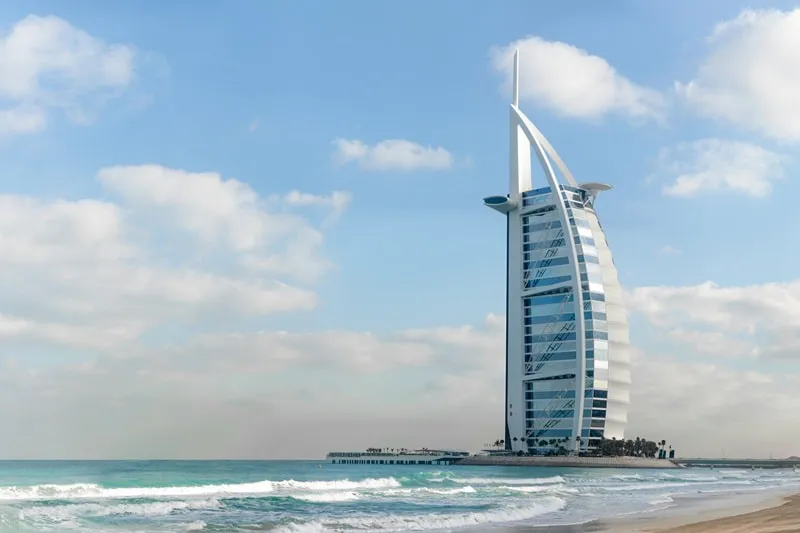
However, the summer heat is quite bearable since all buildings have air conditioning. Even in such a climate, gardens are grown in the Arab Emirates, golf courses are arranged, and in 2013, the world's largest flower park was opened in Dubai.
The Arab Emirates is considered one of the safest countries. Police work is well-established here, there's high equipment with video surveillance systems, and artificial intelligence technologies are developed. Comfortable life is largely related to political stability, strict religious laws, and high living standards.
The UAE has always had a good attitude towards Russian people. The state generally maintains neutrality in international conflicts, so recently nothing has changed regarding obtaining residence permits in Dubai for Russians. The local population respects the Russian president and has a positive attitude towards Russians. There are fines for discrimination based on nationality.
Leisure in the UAE can be spent as if you're on holiday — beaches, resort hotels, yacht trips or Dubai nightlife. Many amusement parks and attractions operate for children and adults, and cultural and sports life thrives year-round. With the onset of autumn and weakening heat, there are even more events.
The ecosystem of the territory and natural features cannot be considered strengths of the UAE. Of course, the authorities managed to create modern cities and a stable economy in desert conditions, with scarce water resources and soil degradation, but environmental problems remain relevant. Tourist reviews about life in Dubai contain information that it's difficult to breathe there. This is due to climatic features and reduced oxygen level. The issues of air pollution, desertification, water scarcity, and increasing waste volume are acute. All this requires specific actions from the government.
The Arab Emirates is a very wealthy and developed state, and living here is quite expensive. For apartment rent, you will have to pay an average of 25,000 dollars per year, with the cost depending on the specific emirate and district. Prices in shops and restaurants exceed Moscow prices by approximately 2.5 times.
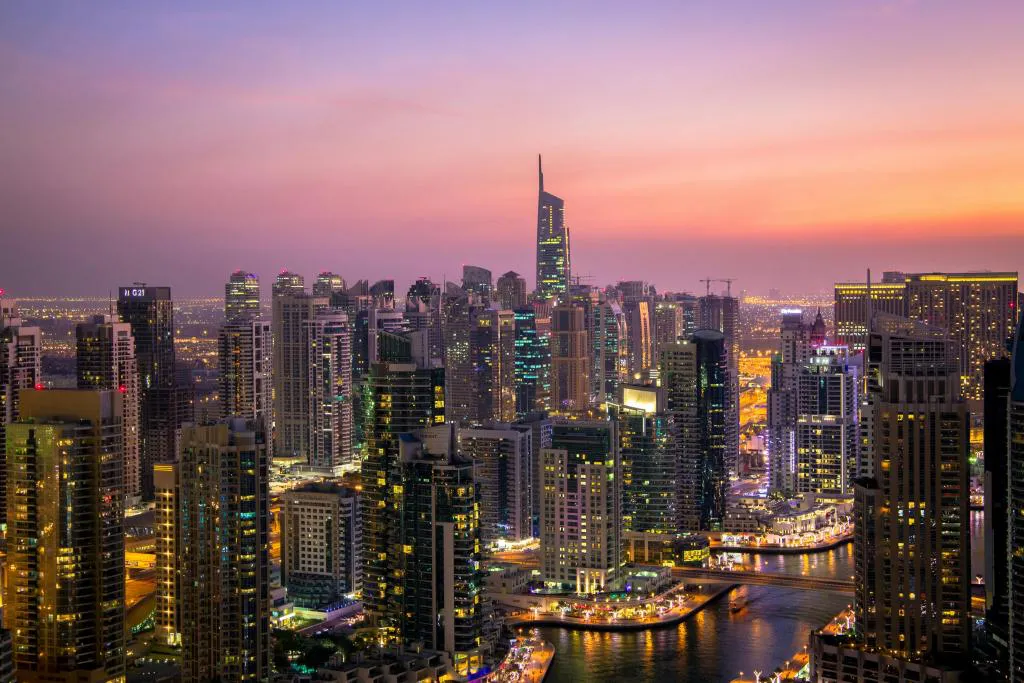
The Arab Emirates adheres to Sharia law, and some crimes can be punished by death, for example, the distribution of prohibited substances. It is also forbidden to drink alcoholic beverages in public places and on the street, transport them from one emirate to another, or publicly show affection to your partner. During Ramadan (religious holiday), you cannot drink and eat on the streets, and many cafes and restaurants are closed.
New skyscrapers and residential complexes are actively being built in Dubai, and construction noise disturbs the peace. Additionally, in the city's most populated areas, there are always many cars on the roads.
This is practically impossible. On the other hand, when your visa expires, this doesn't mean you must leave the country immediately. The visa can be extended, and you can continue living in Dubai provided you remain a property owner. In the Emirates, there are no restrictions regarding the number of visa extensions.
Dubai has earned a reputation as a city for wealthy people. It indeed ranks among the world's most expensive cities, though not at the top. According to the Mercer ranking, Dubai holds 31st position among the most expensive places for expats. It's surpassed by major cities in America and Asia, as well as Vienna, London, and Copenhagen. On Numbeo, you can find information about the monthly cost of living in Dubai. The average monthly expenses for one person are 949 dollars (3,487 dirhams), but this amount doesn't include housing rent. Let's examine in detail how the cost of living in Dubai breaks down.
When buying groceries in Dubai supermarkets, be prepared to pay 15% more than in Moscow, however, your shopping will cost less than in New York, London, or Berlin.
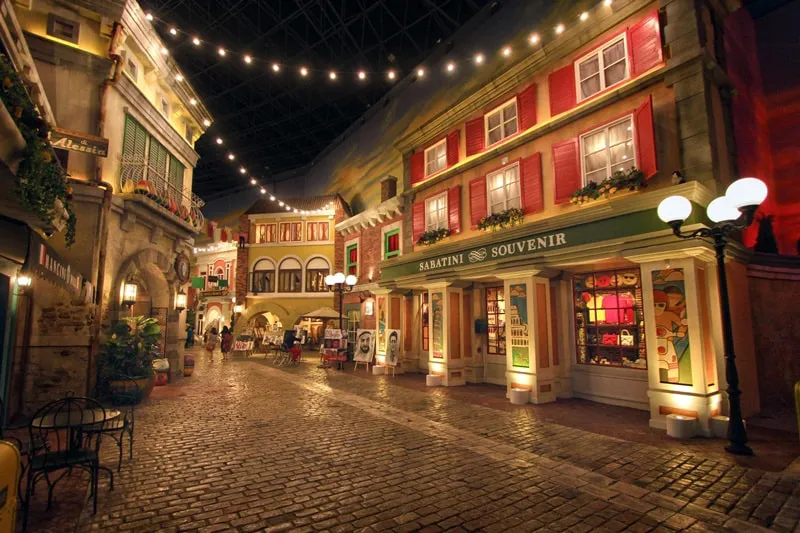
Approximate food prices in Dubai:
You can travel around the city by metro, bus, tram, or water transport. One journey costs 3–15 dirhams (0.8–4 dollars) by card, depending on the distance and whether you have a 'gold' VIP card or are a resident. However, city residents more commonly use personal cars or taxis. One litre of petrol costs 3.2–3.4 dirhams (0.8–0.9 dollars).
Rental costs represent the largest expense for expats, and life in Dubai is no exception. Rent and utilities account for almost 50% of the monthly budget. The situation is complicated by the fact that in the Arab Emirates, rent is paid in advance for a long period (6–12 months). On average, renting an apartment for a year costs 86,713 dirhams (approximately 1,967 dollars). If you plan to rent a villa, prepare around 260,949 dirhams (5,920 dollars).
Utility bills are typically calculated by meter. For this expense category, you should budget approximately 645 dirhams per month for an 85 sq m apartment. This includes electricity, water supply, garbage collection, air conditioning, and heating. Tenants are also subject to a housing fee, which is 5% of the rental amount.
Housing expenses often include services of domestic helpers or cleaners. Monthly, you'll pay 700–800 dollars for full-time cleaning or 100 dollars for weekly cleaning.
Unlimited internet costs an average of 368 dirhams (100 dollars) monthly, while a package with internet and cable television will cost over 1,000 dirhams (272 dollars) per month.
If you plan to live in Dubai with children, private kindergartens (English-speaking) are available, costing approximately 25,000–45,000 dirhams (7,000 to 12,000 dollars) annually.

School students can receive education in public or private schools. For foreign citizens, education will be paid in either case. A year of study in a private school in Dubai costs 8,000–26,000 dollars.
Private schools follow international education standards, with choices between American, British, French, and other schools. There is also one Russian-language school in Dubai, where education follows Russian Federation standards.
If you've decided to move to Dubai, familiarise yourself with the local labour market structure. Most United Arab Emirates residents are expats, which demonstrates the country's excellent conditions for foreign citizens. However, there are certain specifics.
Marketers, economists, financiers, analysts, and banking professionals can find good positions in Dubai. If you're applying for a qualified position, you'll need to verify your education level, and medical workers must also pass an examination. Preference is given to those who can sign contracts for 12 months or longer, as employers find it unprofitable to spend money training workers who stay for short periods.
The reality of life in Dubai is complicated by the fact that many Russians don't know Arabic or English well enough to qualify for prestigious positions. They have to take low-paying jobs with approximate salaries:
These are average figures and they may vary depending on the season.
Advantages when job hunting include:

Qualified work requires candidates to verify their education level. Medical positions require passing an examination. Candidates willing to sign long-term contracts (1 year or more) have better chances, as training employees for short periods is unprofitable for employers.
New employees may be assigned a probation period of 1–6 months. It's important to understand that if the employer is dissatisfied, they can dismiss the newcomer in one day.
The workday usually lasts 8–9 hours, depending on the specific organisation and work sphere. The working week might seem unusual at first. Since life in Dubai follows Muslim laws, the working week starts on Sunday and ends on Thursday. People adapt to this quickly.
Regardless of citizenship, specialty, or position, everyone is entitled to 30 days of paid vacation. If you couldn't use this right in the current year for any reason, your next year's vacation will be 60 days, and the employer must provide these days to avoid legal issues.
According to UAE labour code, overtime work isn't prohibited, but any additional workload must be compensated by the employer. The minimum compensation equals 125% of the employee's normal hourly rate. If overtime coincides with a weekend or holiday, payments will be higher.

Either party can initiate contract termination. If the dismissal is initiated by the employer, they must notify the employee in advance and pay compensation equal to 21 days' salary. Notification periods are determined by the period of time that the employee has been employed for: employees working for less than 3 months are notified 7 days in advance; for those working for a period between 3 months and 5 years — 30 days; for over 5 years — 90 days.
If the dismissal is at the employee's request, they must also notify the employer. The notification period is usually specified in the employment contract. If less than 12 months have passed since signing the contract, the company may require the employee to reimburse all employment expenses. If an employee decides not to compensate expenses and disappears without explanation, they face a lifetime ban on working in the UAE.
Therefore, if the contract termination is by mutual agreement, request that the employer issue a “No Objection Certificate”.
While the Arab Emirates has no trade unions, this doesn't mean workers' rights aren't protected. Conflicts between employees and companies are handled by two bodies: the General Directorate of Residency and Foreigners Affairs, and the Ministry of Human Resources and Emiratisation. If their decision is unsatisfactory, it can be appealed in court.
Companies typically cover employee medical insurance and housing expenses. Sometimes employers also pay for employee meals, but this is less common. If you decide to visit your homeland during vacation, they'll likely pay for plane tickets, and for holidays in the UAE, they might provide a corporate car. This depends on the specific company.
The district's landmark and symbol of extravagant life is an artificial yacht marina. The area is built up with luxurious, technologically equipped buildings, including famous structures like the world's tallest residential skyscraper, Princess Tower. Studio apartment rent here averages 82,120 dirhams per year. The area features luxurious infrastructure, high-end shopping centres, sports clubs, restaurants, and entertainment venues. All this makes life here unforgettable.

Compared to other districts, luxurious life here is somewhat cheaper, but the infrastructure matches neighbouring Dubai Marina. This area is mainly populated by white-collar workers. A studio apartment in Jumeirah costs approximately 77,120 dirhams per year. Residents can relax after work while enjoying picturesque views of artificial lakes surrounding the area.
This historical district is the most affordable and is styled after South Asia. The name "Bur Dubai" translates as "mainland Dubai". It's separated from the Deira district by Dubai Creek. On average, studio apartment rent here costs 64,600 dirhams per year. The Bur area offers opportunities to explore Dubai's cultural and historical heritage.
This district is located in Dubai's centre and is magnificent. It houses the tallest man-made building — Burj Khalifa, as well as the luxurious Dubai Mall. The mystical Dubai Fountains are also worth seeing. Beautiful life thrives in this heart of Dubai. District residents can admire stunning views of Burj Khalifa, and their lifestyle is defined by proximity to the city's elite. Apartment rent in the centre averages 96,250 dirhams per year.
The district concentrates all major office buildings and borders Dubai's central part. The name "Business Bay" speaks for itself. On average, renting a studio here costs 79,450 dirhams per year. Business activity is very high in the area, hence the expensive real estate. Business Bay is called a "city within a city" and is very popular among businesspeople who want to live near their workplace. This district is for those who want to be in the thick of events and close to all amenities.
Which district could become your home should be decided based on their characteristics.
In regards to this matter, particular attention is needed, especially if you plan to move there for permanent residence. The Arab Emirates has made significant strides towards gender equality. Women's rights here are now much closer to European standards than in other Arab countries. However, there are still restrictions.
Women in the UAE must follow completely different rules than those we're accustomed to. If you plan to live in this country, you should learn about them.
The country has certain cultural and social norms that influence women's behaviour, their role in society, and the way they dress. There are no strict rules regarding appearance, but conservatism is expected from women in this matter.
Some career fields are either closed to women or have limitations on career advancement. Engineering, construction, and military specialties are only accessible to men. Also, it's important to note that employee rights regarding working hours, health protection, and maternity leave are insufficiently protected.
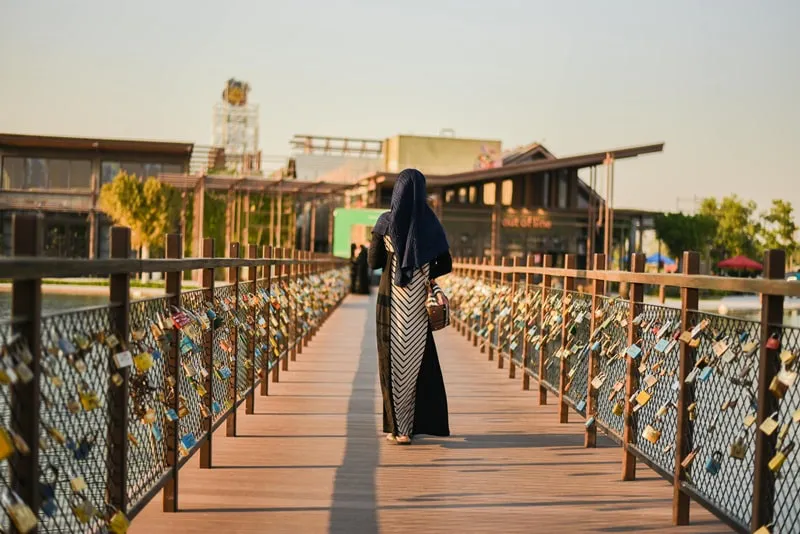
Family matters (divorce, marriage, child custody) are regulated by Sharia law, some aspects of which apply to foreign women as well. This creates inequality and restrictions for women, especially in matters of inheritance, child custody, or divorce.
The UAE has a male guardianship system regarding women. For example, they need consent from their husband, father, or brother to make important decisions. Although these rules are gradually becoming obsolete in the country, and in Dubai in particular. For instance, in 2000, the marriage law was revised — adult women no longer need a guardian's consent to marry.
As mentioned above, the UAE is gradually equalizing the rights of women and men. Significant progress has been achieved in several areas.
It's no coincidence that people from all countries come to Dubai. This city can be called a new Babylon, where people of any nationality can live comfortably. However, remember that the city is in an Arab country, and before moving there permanently, you need to study information about women's life in Dubai to avoid behaving inappropriately.
Overall, Russian women can expect their standard of living to improve in the UAE. It is important to note that this country is one of the safest in the world. Here, women can feel safe going out alone, including after dark.
Some restrictions for foreign women exist, but they usually only concern following good manners. For example, visiting religious places in provocative, frivolous clothing or displaying intimate affection in public is prohibited. Moderate emotionality is encouraged, and conflict situations are preferred to be resolved peacefully and with restraint.
Moving to the Arab Emirates for permanent residence is quite feasible, and a resident visa can be obtained quickly and easily. Freelancers, property buyers, entrepreneurs, qualified workers, and wealthy retirees can become residents. In 2022, the UAE Cabinet approved a new decree that made it easier for foreign citizens to move to the UAE.
There is no permanent residence permit in the country. Instead, you must obtain a resident visa if you plan to come to the UAE for a long time. The visa will give you resident status and serve as an equivalent to a residence permit. After this, you can obtain a national identity card — Emirates ID (or Resident ID).
In Dubai, you can easily find work if you have a Russian university diploma. You can legalize not only higher education diplomas (master's, bachelor's, specialist degrees) but also technical school or college diplomas. If the receiving party requires a retraining diploma, it is also verified by the consulate.
The time zone here is UTC+4 (GMT+4). The time difference between Moscow and Dubai is exactly 1 hour. This means that when it's 07:48:30 in Dubai, it's 06:48:30 in Moscow. The distance between the cities is 3,682 kilometres, so these figures are quite understandable.
It is not true. The cost of living in Dubai is quite high, but living in this city is cheaper than in Tokyo, Hong Kong, or New York. Dubai ranks 31st in the world for cost of living.
The only official language in the country is Arabic. However, English is commonly used in daily life as it is an international language. Signs are duplicated in English, and it is used to communicate with foreigners in restaurants, shops, and business. Standard contracts are drawn up in both English and Arabic.
Dubai is rightfully called the eighth wonder of the world and the "Pearl of the Middle East". It took less than 50 years for a village in the desert to grow into a major international trade and transport hub, a tourist and financial centre of the Middle East region. Dubai houses offices of all major world corporations, and the city itself is very convenient for both peaceful and fast-paced life. Here, you can easily find a balance between work and leisure. All these aspects contribute to many people choosing this city for permanent residence.